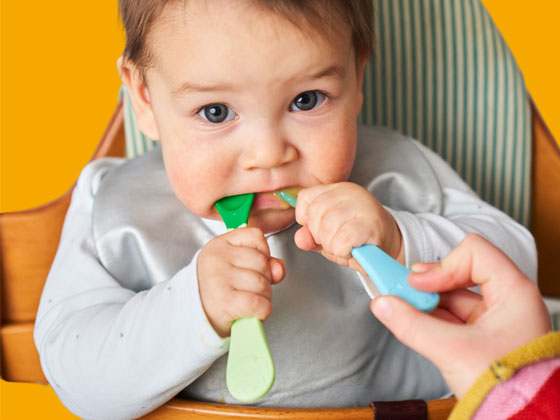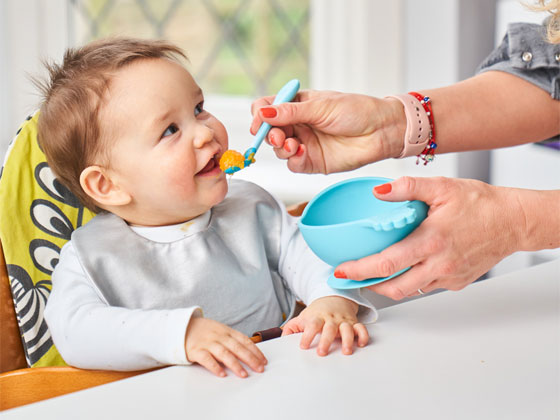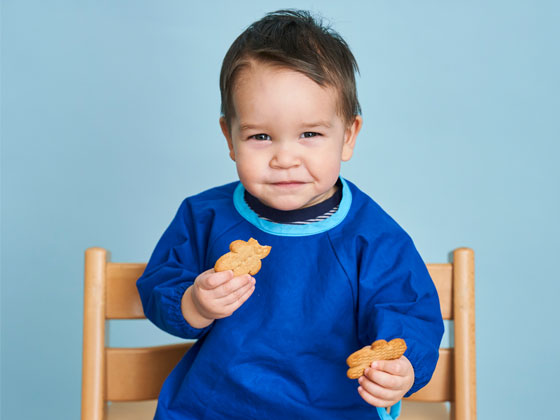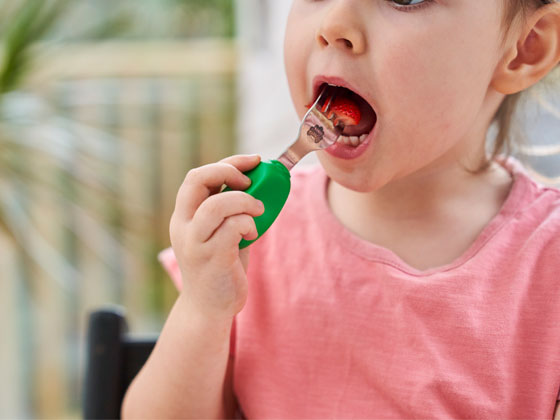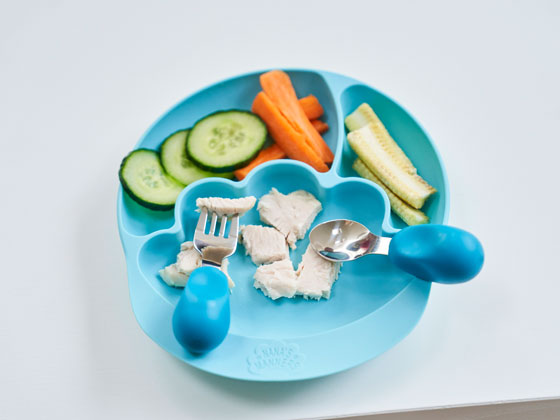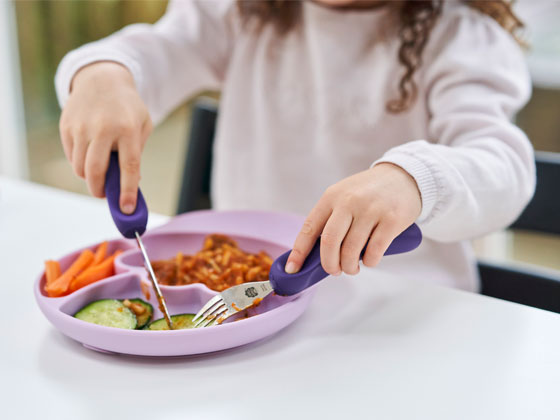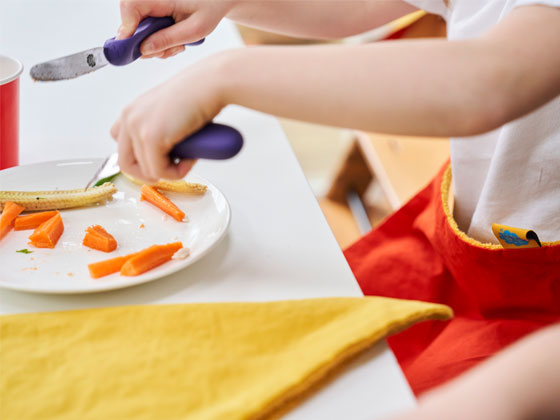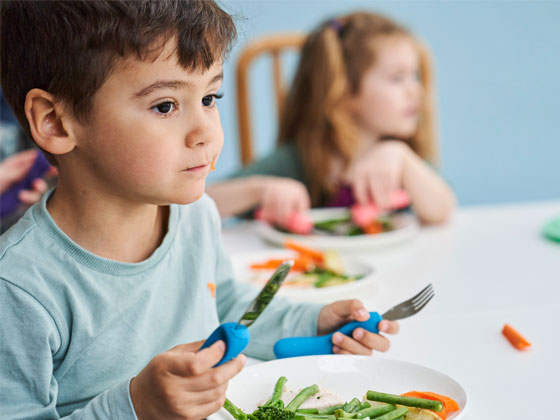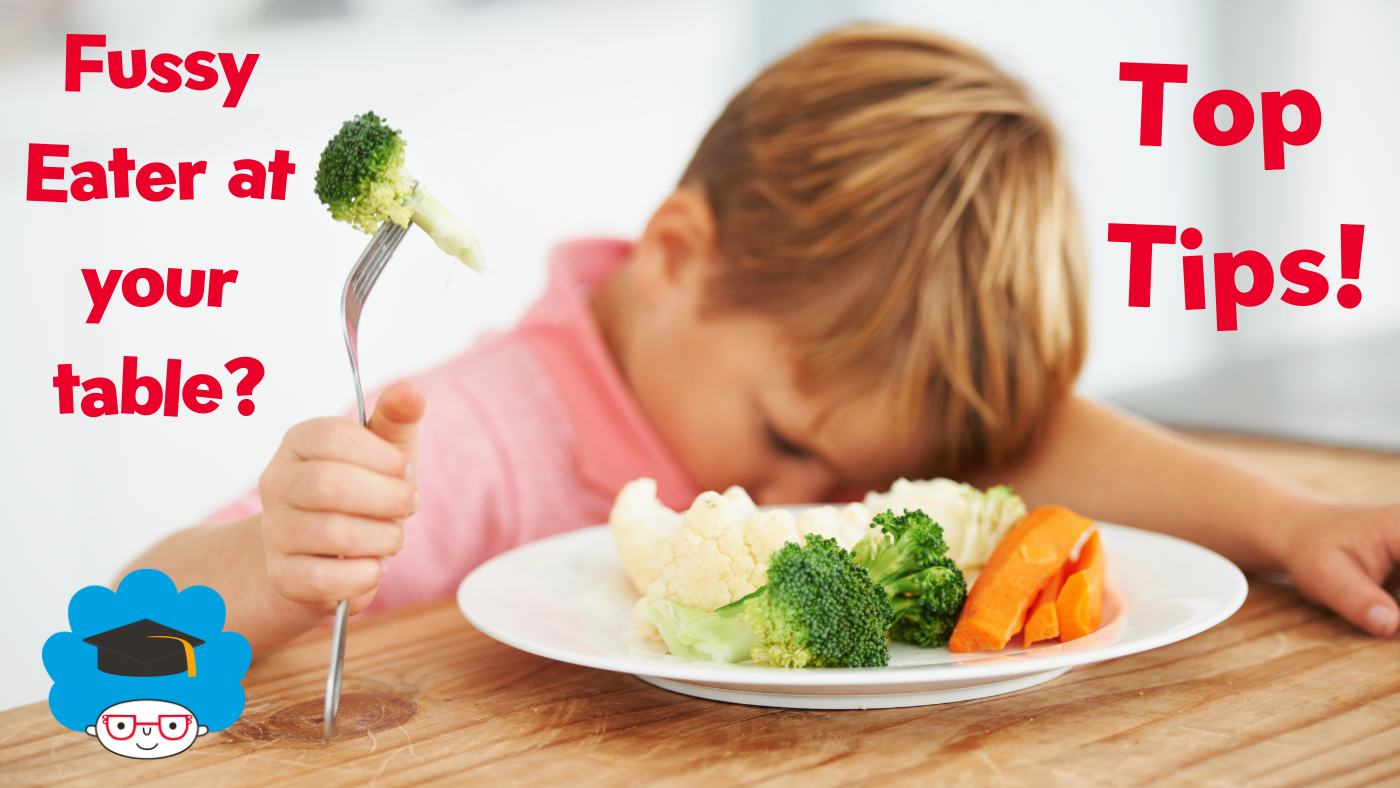If you’ve never had to deal with a fussy eater on your journey of parenthood, that’s great for you. We can confidently say you are in the vast minority. So called ‘fussy eating’ behaviour is definitely on a spectrum, with each child having their place on it (which will also change at different points of their childhood, or even over the week, so never get too comfortable!) It can be a source of incredible frustration at times – we’ve been there. Here’s a few things that can help make dealing with a fussy eater that bit easier and less stressful as a parent.

DO NOT...
Label them a fussy eater – use this language in front of them, or in ear shot.
This will negatively reinforce the behaviour and have NO positive effect at all. It can affect future behaviour and attitudes, instilling the unhelpful thought process in your child; “Well, I am a fussy eater so I’m not going to eat that…” Labels here can be useful when you are venting frustrations to another parent, just make sure it is well out of earshot of little people.
Instead try…
If they say they don't like something, be specific about what it is. For example, if they say "I don't like vegetables!", label exactly what they are not enjoying, e.g. "I can see you aren't enjoying the carrots the way I have cooked them today. Next time we can try them cooked in a different way with some other vegetables too..." Taking the focus away from food at mealtimes works wonders too. Sit down together and chat about the day, enjoyable topics, anything that works for you all. This takes the focus away from who is eating what and how much, relieves pressure and makes the whole experience more enjoyable for everyone, leaving a positive association with mealtimes and the connection they can bring.
DO NOT...
Only give them ‘safe’ foods or only give them only ‘unsafe’ foods.
‘Safe’ foods are foods they are familiar with and like, ‘unsafe’ foods are things they either believe they don’t like or have not tried before. As an adult, imagine sitting down to a meal with a plate full of unfamiliar food, with no idea of the textures or what anything may taste like. Most of us would be instinctively apprehensive as a first reaction. The other extreme – only serving up foods you know they will eat will become repetitive and limit their exposure to new foods, exacerbating the fussy eating problem.
Instead try…
‘Safe’ foods can be used in a really positive way to tackle ‘fussy eating’. Using them alongside new (‘unsafe’) things on a plate immediately makes kids feel more relaxed. By introducing one or two ‘new’ things at a time, alongside another food they know and like, they are far more likely to try the unfamiliar food in their own time.
DO NOT...
Expect them to eat (whatever) if they’re hungry.
“They’ll soon eat it when they get hungry…” may be familiar to your ears, especially from the older generation, but this isn’t really very helpful in these situations. This turns a mealtime into a battle of wills – who can hold out the longest? This is not what anyone wants here.
Instead try…
Fussy eating increases when children are tired or over hungry. Keeping mealtimes regular can really help here. You will find there are times when your child’s appetite is bigger or smaller. This is normal. It can be affected by if they’re feeling unwell or going through a growth spurt. As long as they are filling up on healthy foods when they are hungry and keeping hydrated when they are not, there is no need to be concerned unless this turns into a long-term issue. (If you are concerned about your child's appetite please speak to your GP or health visitor who will be able to support you.)
DO NOT
Comment on their weight.
“You’ll waste away if you don’t eat…” “You’ll turn into a huge cake if you eat too many…” Linking foods to weight is not helpful here at all.
Instead try…
Talking positively about healthy foods. Talking lightly (in an age-appropriate way) about what the different food groups can do is a great start to educating children about food. If you worry here about what is right or wrong here, a good guide is just ensure there is no judgement in your comments, e.g. “This cheese is very yellow! Do you know what cheese helps our bodies do? Things inside it help us grow and make us strong. It helps our bones…” , “Did you know there are things inside this orange called ‘vitamins’? They help all the special parts inside our body work well…” This can lead to great conversations and more positive learning opportunities around healthy eating.

DO NOT
Focus on talking about the food at mealtimes.
How boring?!? Imagine sitting with an adult and going on and on about who’s eating what. It is no more interesting for a child in this situation. This turns mealtimes into a battle and power struggle.
Instead try…
Biting your tongue here takes will power from you, but doing so can help prevent problems in the future. A study of university students whose parents had insisted they ate a food as a child found that 72% of them now didn’t eat that food. It emerged that they perceived the parent as the “winner” and themselves as the “loser”. Now that they’d left home and it was up to them, they chose to “win” by not eating it. There are so many more things to talk about at mealtimes, a time when you are together. Talking about your child’s day and sharing some details about yours, what they enjoyed, what they are looking forward to – conversation cards can help when you’re tired and need a bit of inspiration for topics. You’ll be surprised how children’s eating can change when you remove the focus from the food on the plate, onto the people around the table.
DO NOT
Negotiate; “Eat this, then you can have this…”
Hands up here – this one is tempting, but you have more chance of them eating a food if you DO NOT tell them to eat it. A study showed that conflict around food consumption was linked to long term food rejection.
Instead try…
Respecting when they say they have finished. You may be thinking “but I can’t give them dessert after two mouthfuls of carrots??!” but let's look at this situation from a different perspective – why not remove the expectation of ‘dessert’ or ‘a treat’ after every meal? This subconsciously labels the main meal as the unenjoyable part you must get through to then enjoy the reward at the end. If you are planning to give them fruit or a yogurt after a meal (or even a biscuit), try serving it all together in one go. You may find they eat the different ‘courses’ in a different order, but so what? Once the yogurt or biscuit is gone, they are more likely to leisurely eat the sandwich or fruit. They are not waiting for a ‘reward’ at the end, so the pressure is taken off the eating itself.

DO NOT
Rush them or try to (spoon) feed them yourself…
Without a physical reason for helping them use their cutlery, just don’t. Imagine someone try to shove a food you aren’t particularly enjoying into your mouth – it’s not going to leave you with a positive association of that food in the future. We’ve all been to that restaurant where they press you to finish as they need the table – no one enjoys the experience.
Instead try…
Allow more time for young children to feed themselves at meals, or pack a lunch for ‘on the hoof’ (as Nana used to call it) if you really need to be somewhere for a certain time. Empower them with cutlery that supports independent use and designed for their grip development, whether they're at the toddler stage or that bit older, at 3 years +.

DO NOT
Use food as a reward system
“If you’re good at the shops, you can have ice-cream later…”. When food is used as a reward, it becomes more appealing. A study showed that using foods in this way can undermine the healthy eating habits you are trying to teach your children, also linking it to cavities and weight gain.
Instead try…
Look for rewards for your child that are unrelated to food. Start with their interests and involve them in selecting the reward they would like to work towards. Perhaps a sticker book? A new bath toy (bath bombs are a favourite reward in our house) or trip to the park? Finding something that they are enthusiastic about is a far better incentive for them to work towards whatever it is you’re trying to achieve. Leaving food out of the equation here supports them to build a positive relationship with food as they continue to grow, discouraging them from linking foods to emotions.

Remember - as challenging as it feels when you are in the mist of dealing with fussy eating, it will not be this way forever. Children are constantly changing as they grow and phases are (usually) just that - you got this! Measure your expectations, do not expect overnight changes and enjoy those little wins along the way in whatever form they take!
Do you have any tips that have worked a treat in dealing with fussy eating in your home? Let us know! Join us to chat on Instagram @nanasmanners

